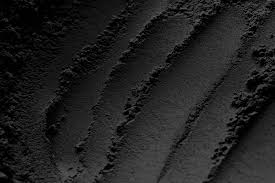
Carbon Black Uses: A Comprehensive Guide
2024-06-06
What is Carbon Black?
Carbon black is a fine, black powder composed primarily of carbon particles. It is produced by the incomplete combustion of hydrocarbons, such as natural gas or petroleum. Carbon black is used in a wide variety of applications, including:
- Tires
- Printing inks
- Paints and coatings
- Plastics
- Batteries
- Electronics
- Rubber
What Are the Different Types of Carbon Black?
There are two main types of carbon black:
- Furnace black is produced by the thermal decomposition of natural gas or petroleum in a furnace. It is the most common type of carbon black and is used in a wide variety of applications.
- Lamp black is produced by the incomplete combustion of vegetable oils or fats in a closed container. It is a finer and more expensive type of carbon black and is used in high-quality printing inks and paints.
What Are the Properties of Carbon Black?
Carbon black is a highly versatile material with a number of unique properties, including:
- High surface area - Carbon black has a very high surface area, which makes it an excellent adsorbent. It is used in a variety of applications to remove impurities from gases and liquids.
- Electrical conductivity - Carbon black is a good electrical conductor. It is used in a variety of electronic applications, including batteries and capacitors.
- Thermal conductivity - Carbon black is a good thermal conductor. It is used in a variety of applications to dissipate heat.
- UV resistance - Carbon black is resistant to ultraviolet radiation. It is used in a variety of outdoor applications to protect materials from the sun's harmful rays.
What Are the Benefits of Using Carbon Black?
There are many benefits to using carbon black, including:
- Improved performance - Carbon black can improve the performance of a variety of products, including tires, printing inks, paints, and coatings.
- Reduced cost - Carbon black is a relatively inexpensive material. It can help to reduce the cost of manufacturing a variety of products.
- Environmental benefits - Carbon black is a sustainable material. It is produced from renewable resources and can be recycled.
What Are the Applications of Carbon Black?
Carbon black is used in a wide variety of applications, including:
- Tires - Carbon black is the primary reinforcing agent in tires. It improves the tire's strength, durability, and traction.
- Printing inks - Carbon black is used to create black printing inks. It provides the ink with a deep, rich color and helps to improve the ink's flow and printability.
- Paints and coatings - Carbon black is used to create black paints and coatings. It provides the paint or coating with a deep, rich color and helps to improve the paint or coating's durability.
- Plastics - Carbon black is used to create black plastics. It provides the plastic with a deep, rich color and helps to improve the plastic's strength and durability.
- Batteries - Carbon black is used in batteries to create the negative electrode. It helps to improve the battery's performance and lifespan.
- Electronics - Carbon black is used in a variety of electronic applications, including capacitors and resistors. It helps to improve the performance and reliability of these electronic components.
- Rubber - Carbon black is used to create black rubber. It provides the rubber with a deep, rich color and helps to improve the rubber's strength and durability.
What Are the Advantages of Carbon Black?
There are many advantages to using carbon black, including:
- High strength - Carbon black is a very strong material. It can be used to reinforce a variety of products, including tires, plastics, and rubber.
- High durability - Carbon black is a very durable material. It can withstand harsh conditions, including extreme temperatures and UV radiation.
- Low cost - Carbon black is a relatively inexpensive material. It can help to reduce the cost of manufacturing a variety of products.
- Environmental benefits - Carbon black is a sustainable material. It is produced from renewable resources and can be recycled.
What Are the Disadvantages of Carbon Black?
There are few disadvantages to using carbon black, including:
- Can be messy - Carbon black is a fine powder that can be messy to work with. It is important to wear a dust mask when working with carbon black.
- Can be hazardous - Carbon black can be a health hazard if it is inhaled. It is important to avoid inhaling carbon black dust.
What Are the Alternatives to Carbon Black?
There are a few alternatives to carbon black, including:
- Activated carbon - Activated carbon is a form of carbon that has been treated to increase its surface area. It is used in a variety of applications, including water purification and air purification.
- Graphene - Graphene is a single-layer of carbon atoms. It is a very strong and durable material. It is used in a variety of applications, including electronics and batteries.
- Carbon nanotubes - Carbon nanotubes are cylindrical structures made of carbon atoms. They are very strong and durable. They are used in a variety of applications, including electronics and aerospace.The future of carbon black is bright. Carbon black is a versatile material with a wide range of applications. As the demand for products that use carbon black continues to grow, the demand for carbon black will also grow.
Conclusion
Carbon black is a versatile material with a wide range of applications. It is a strong, durable, and inexpensive material. It is also a sustainable material that can be produced from renewable resources and recycled. The future of carbon black is bright. As the demand for products that use carbon black continues to grow, the demand for carbon black will also grow.
carbon black company
If you want to wholesale carbon black, but don't know which carbon black company to choose, you might as well try DERY. As a professional carbon black company, DERY can provide you with high-quality products and services. Welcome to contact us for detailed ordering information!
Table 1: Properties of Carbon Black
| Property | Value |
|---|---|
| Appearance | Fine, black powder |
| Density | 1.8-2.2 g/cm³ |
| Surface area | 100-1000 m²/g |
| Electrical conductivity | 10-2-104 S/m |
| Thermal conductivity | 0.1-1.0 W/mK |
| UV resistance | Excellent |
Table 2: Applications of Carbon Black
| Application | Benefits |
|---|---|
| Tires | Improved strength, durability, and traction |
| Printing inks | Deep, rich color and improved flow and printability |
| Paints and coatings | Deep, rich color and improved durability |
| Plastics | Deep, rich color and improved strength and durability |
| Batteries | Improved performance and lifespan |
| Electronics | Improved performance and reliability |
| Rubber | Deep, rich color and improved strength and durability |
Figures
Figure 1: Carbon black production
Figure 2: Carbon black applications
Figure 3: Carbon black properties
Sources
- Carbon Black Association: https://www.carbonblack.org/
- International Carbon Black Association: https://www.carbonblack.global/
Frequently Asked Questions
What is carbon black?
Carbon black is a fine, black powder composed primarily of carbon particles. It is produced by the incomplete combustion of hydrocarbons, such as natural gas or petroleum.
What are the different types of carbon black?
There are two main types of carbon black: furnace black and lamp black.
What are the properties of carbon black?
Carbon black has a number of unique properties, including high surface area, electrical conductivity, thermal conductivity, and UV resistance.
What are the benefits of using carbon black?
There are many benefits to using carbon black, including improved performance, reduced cost, and environmental benefits.
What are the applications of carbon black?
Carbon black is used in a wide variety of applications, including tires, printing inks, paints and coatings, plastics, batteries, electronics, and rubber.
What are the advantages of carbon black?
There are many advantages to using carbon black, including high strength, high durability, low cost, and environmental benefits.
What are the disadvantages of carbon black?
There are few disadvantages to using carbon black, including that it can be messy and hazardous if inhaled.
What are the alternatives to carbon black?
There are a few alternatives to carbon black, including activated carbon, graphene, and carbon nanotubes.
What is the future of carbon black?
The future of carbon black is bright. As the demand for products that use carbon black continues to grow, the demand for carbon black will also grow.

